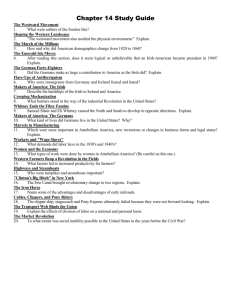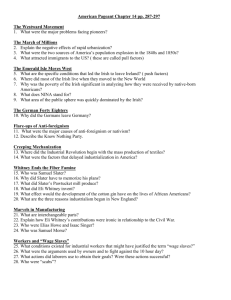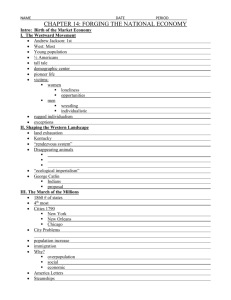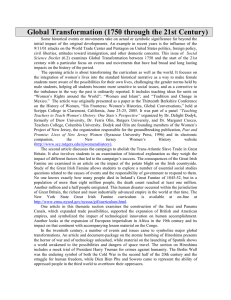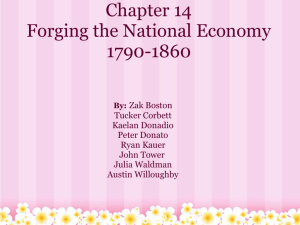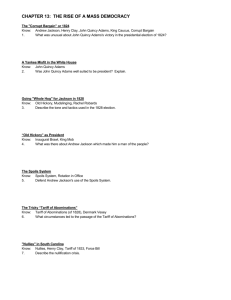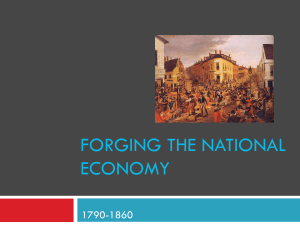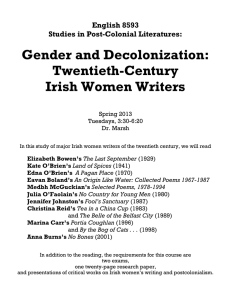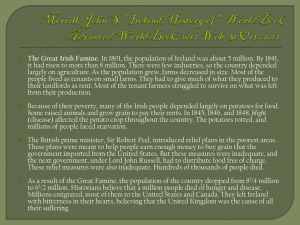CHAPTER 14: FORGING THE NATIONAL ECONOMY
advertisement
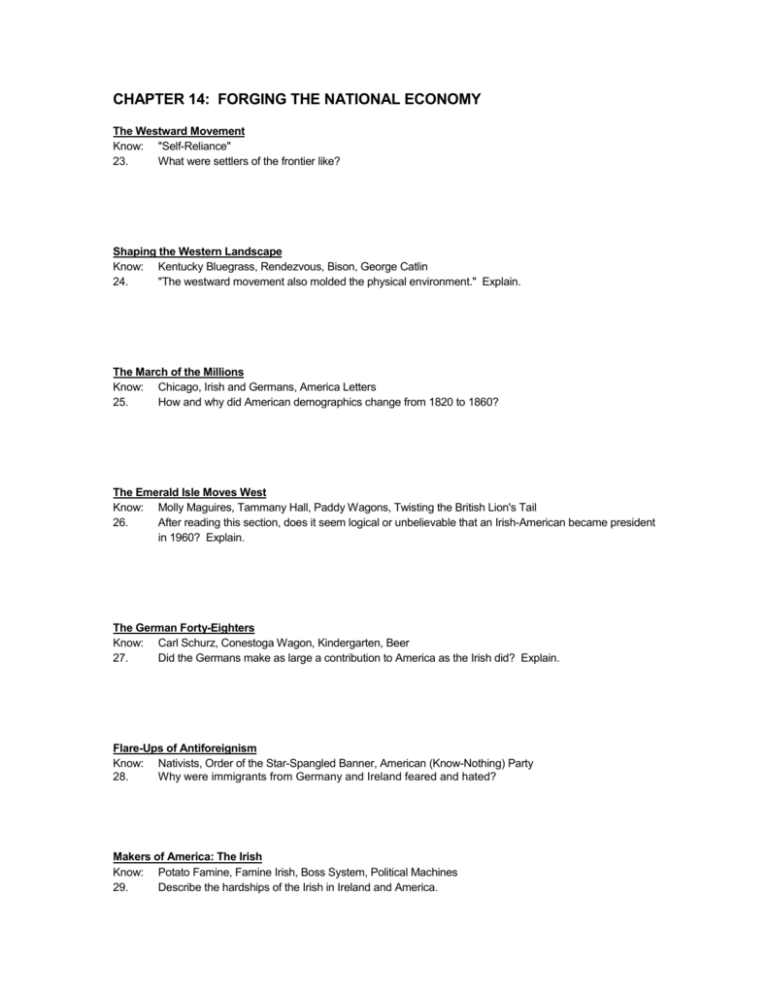
CHAPTER 14: FORGING THE NATIONAL ECONOMY The Westward Movement Know: "Self-Reliance" 23. What were settlers of the frontier like? Shaping the Western Landscape Know: Kentucky Bluegrass, Rendezvous, Bison, George Catlin 24. "The westward movement also molded the physical environment." Explain. The March of the Millions Know: Chicago, Irish and Germans, America Letters 25. How and why did American demographics change from 1820 to 1860? The Emerald Isle Moves West Know: Molly Maguires, Tammany Hall, Paddy Wagons, Twisting the British Lion's Tail 26. After reading this section, does it seem logical or unbelievable that an Irish-American became president in 1960? Explain. The German Forty-Eighters Know: Carl Schurz, Conestoga Wagon, Kindergarten, Beer 27. Did the Germans make as large a contribution to America as the Irish did? Explain. Flare-Ups of Antiforeignism Know: Nativists, Order of the Star-Spangled Banner, American (Know-Nothing) Party 28. Why were immigrants from Germany and Ireland feared and hated? Makers of America: The Irish Know: Potato Famine, Famine Irish, Boss System, Political Machines 29. Describe the hardships of the Irish in Ireland and America. Creeping Mechanization Know: Factory System, Industrial Revolution 30. What barriers stood in the way of the industrial Revolution in the United States? Whitney Ends the Fiber Famine Know: Samuel Slater, Eli Whitney, Cotton Gin, King Cotton 31. Samuel Slater and Eli Whitney caused the North and South to develop in opposite directions. Explain. Makers of America: The Germans Know: Forty-Eighters, Mennonites, Milwaukee, Amish 32. What kind of lives did Germans live in the United States? Why? Marvels in Manufacturing Know: Interchangeable Parts, Isaac Singer, Limited Liability, Free Incorporation Laws, Samuel F. B. Morse 33. Which were more important in Antebellum America, new inventions or changes in business forms and legal status? Explain. Workers and "Wage Slaves" Know: Wage Slaves, Strikebreakers (Scabs), Commonwealth v. Hunt 34. What demands did labor have in the 1830's and 1840's? Women and the Economy Know: Lowell Mills, Catherine Beecher, Cult of Domesticity, Fertility Rate, Child-centered Homes 35. What types of work were done by women in Antebellum America? (Be careful on this one.) Western Farmers Reap a Revolution in the Fields Know: Corn, John Deere, Steel Plow, Cyrus McCormick, Mechanical Mower-reaper, Cash-crop Agriculture 36. What factors led to increased productivity for farmers? Highways and Steamboats Know: Lancaster Turnpike, National (Cumberland) Road, Robert Fulton 37. Why were turnpikes and steamboats important? "Clinton's Big Ditch" in New York Know: Erie Canal 38. The Erie Canal brought revolutionary change to two regions. Explain. The Iron Horse 39. Name some of the advantages and disadvantages of early railroads. Cables, Clippers, and Pony Riders Know: Trans-Atlantic Cable, Clipper Ships, Stagecoaches, Pony Express 40. The clipper ship, stagecoach and Pony Express ultimately failed because they were not forward looking. Explain. The Transport Web Binds the Union Know: Division of Labor 41. Explain the effects of division of labor on a national and personal basis. The Market Revolution Know: John Jacob Astor, Social Mobility 42. To what extent was social mobility possible in the United States in the years before the Civil War?
